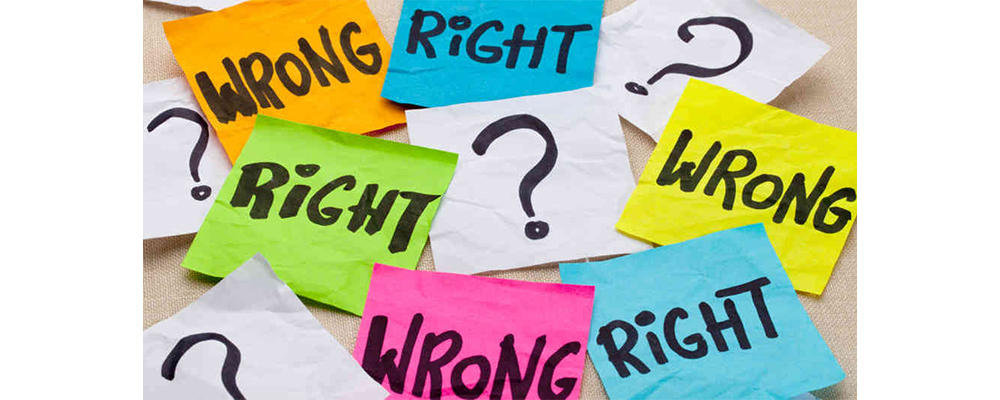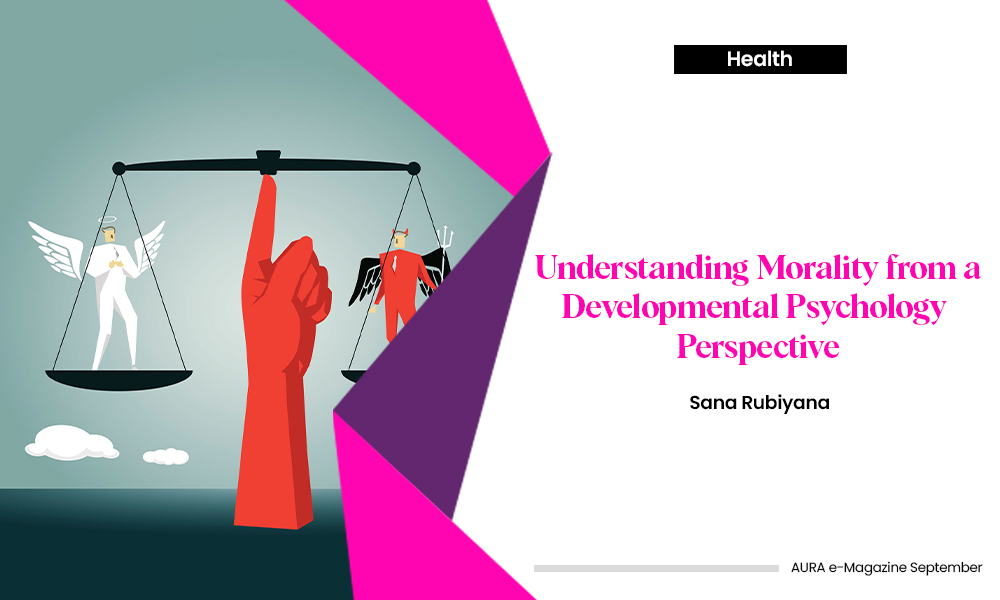Psychologist and Rational Emotive Cognitive Behaviour Therapist sanarubiana@gmail.com, IG @sanarubiyana15, Twitter/X @SRubiyana
Morality indicates the right and wrong way to behave; for instance, one should be fair and not unfair to others (Haidt & Kesebir, 2010). In other words, morality refers to the set of standards that enable people to live cooperatively in groups. It is what societies deem “right” and “acceptable.” Morality is not fixed. What is considered acceptable in your culture might not be acceptable in another. Geographical regions, religion, family, and life experiences all influence morals.

Experts do not exactly know how morals are developed, but there are a few theories they all agree on-
- Freud’s morality and the superego: Sigmund Freud suggested moral development occurred as a person’s ability to set aside their selfish needs (id) to be replaced by the values of important socialising agents, such as a person’s parents, teachers, and institutions (superego).
- Piaget’s theory of moral development: Jean Piaget focused on the social-cognitive perspective of moral development. He theorised that moral development unfolds over time alongside the progressing stages of cognitive development. Early on, children learn to adopt certain moral behaviours for their own sake (it makes them feel good) rather than just abide by moral codes because they do not want to get into trouble. By adolescence, you can think more abstractly and begin to make moral decisions based on higher universal principles for the greater good of society.
- B.F. Skinner’s behavioral theory: B.F. Skinner focused on the power of external forces that shaped an individual’s development. For example, a child who receives praise for being kind may treat someone with kindness again out of a desire to receive more positive attention in the future.
- Kohlberg’s theory outlines six stages of moral development within three different levels. Stage 1 (Obedience and Punishment): The earliest stages of moral development, obedience and punishment are especially common in young children, but adults can also express this type of reasoning. According to Kohlberg, people at this stage see rules as fixed and absolute.Obeying the rules is important because it is a way to avoid punishment.
Stage 2 (Individualism and Exchange): Children account for individual points of view and judge actions based on how they serve individual needs at the individualism and exchange stage of moral development. Stage 3 (Developing Good Interpersonal Relationships): Often referred to as the “good boy-good girl” orientation, this stage of the interpersonal relationship of moral development is focused on living up to social expectations and roles.There is an emphasis on conformity, being “nice,” and considering how choices influence relationships.
Stage 4 (Maintaining Social Order): This stage is focused on ensuring that social order is maintained. At this stage of moral development, people consider society as a whole when making judgments. The focus is on maintaining law and order by following the rules, doing one’s duty, and respecting authority.
Stage 5 (Social Contract and Individual Rights): The ideas of a social contract and individual rights cause people in the next stage to begin to account for other people’s differing values, opinions, and beliefs. Rules of law are important for maintaining a society, but members of the society should agree upon these standards.
Stage 6 (Universal Principles): Kohlberg’s final level of moral reasoning is based on universal ethical principles and abstract reasoning. At this stage, people follow these internalised principles of justice, even if they conflict with laws and rules.
Kohlberg believed that only a relatively small percentage of people reach the post-conventional stages (around 10 to 15%).
Morality world over
Most morals are not fixed. They usually shift and change over time.
Ideas about whether certain behaviours are moral—such as engaging in pre-marital sex, entering into same-sex relationships, and using cannabis—have shifted over time. While most of the population once viewed these behaviours as “wrong,” the vast majority now finds these activities “acceptable.”
In some regions, cultures, and religions, using contraception is considered immoral. In other parts of the world, some people consider contraception the moral thing to do, as it reduces unplanned pregnancy, manages the population, and reduces the risk of sexually transmitted illnesses.
Moral Development in Ancient Times-
The idea that humans develop morally had more currency among the ancient Greek philosophers. It is central to the moral philosophy of Plato, Aristotle, and the Stoics. In all those cases, moral development is to be understood as character development – becoming virtuous. Those considered morally good are considered virtuous, holding themselves to high ethical standards, while those viewed as morally bad are considered wicked, sinful, or even criminal. Morality was a key concern of Aristotle, who first studied questions such as “What is moral responsibility?” and “What does it take for a human being to be virtuous?”
Ethics VS Morality- Ethics is concerned with rights, responsibilities, the use of language, what it means to live an ethical life, and how people make moral decisions. We may think of moralising as an intellectual exercise, but more frequently, it attempts to make sense of our gut instincts and reactions. It is a subjective concept, and many people have strong and stubborn beliefs about right and wrong that can place them in direct contrast to the moral beliefs of others. However, even though morals may vary from person to person, religion to religion, and culture to culture, many are universal, stemming from basic human emotions.
Are people born with morals and ethics?
We used to think that people are born with a blank slate, but research has shown that people have an innate sense of morality. Of course, parents, older siblings, grandparents, teachers, and the greater society can certainly nurture and develop morality and ethics in children.
Evolutionary psychology stands alone in maintaining that even preverbal infants show the beginnings of a sense of morality and fairness (e.g., Bloom, 2013) and that several species of social animals likewise display altruism and a rudimentary sense of fairness (de Waal, 2006). In humans, however, the moral sense is expected to change and develop throughout life, depending on the culture, its socialisation techniques, and reward contingencies.
Examples of morality include being honest, treating others with respect, helping those in need, and adhering to laws and social norms. These moral values can also be developed and enhanced through professional help. Counselling can assist clients in problem-solving, making wise decisions, and encouraging them to indulge in more pleasant and acceptable behaviours.


0 Comments